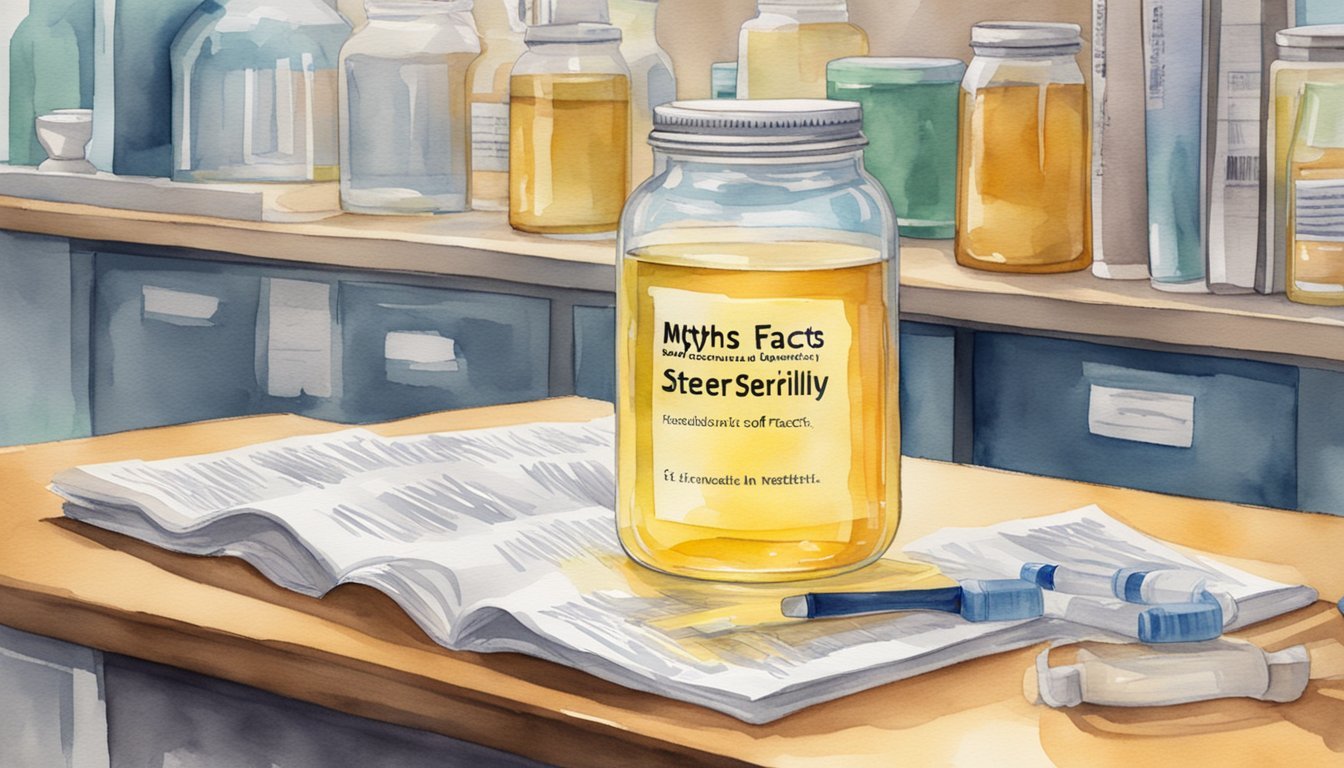Understanding Urine Composition
Urine is a complex solution produced by the body, consisting of water and dissolved wastes. It plays a vital role in the body’s waste management system, specifically in the regulation of chemical composition in the blood.
Chemical Makeup of Urine
Urine’s primary component is water, accounting for about 95% of its volume. The remaining 5% comprises various dissolved substances, the most abundant of which is urea, a product of protein metabolism. Other substances present include creatinine, a breakdown product of muscle metabolism; various salts such as sodium, potassium, and chloride; as well as trace amounts of proteins. These components are collectively responsible for urine’s function in eliminating metabolic waste from the body.
- Constituents of Urine:
- Water: ~95%
- Urea
- Creatinine
- Salts:
- Sodium
- Potassium
- Chloride
- Trace proteins
Role in the Body and Kidney Function
The kidneys play an essential role in urine production as part of their broader task to maintain homeostasis – the body’s stable internal environment. They filter blood, remove excess substances and waste, and return vital salts and water back to the bloodstream. The urine generated in the kidneys carries dissolved chemicals and waste away from the body. This complex process is a critical aspect of overall metabolism and kidney function, as it ensures the removal of substances that could potentially be harmful if allowed to accumulate.
Myths and Facts About Urine Sterility

Urine sterilility is a topic surrounded by misconceptions. This section will explore the realities behind sterility myths, and the implications of these discoveries in medical and survival contexts.
Debunking Sterility Myths
The longstanding belief that human urine is sterile has been refuted by scientific research. Studies have established that urine can contain bacteria, challenging the common notion of ‘sterile urine.’ Even in healthy individuals, urine may host microbial life. The historical basis for the sterile urine myth traces back to claims made by Epidemiologist Edward Kass in the mid-20th century, yet contemporary research, including findings published in the Journal of Clinical Microbiology, indicates that even though bacteria levels are typically low, they are indeed present.
Urine in Medicine and Survival Situations
In medical settings, understanding that urine is not germ-free has implications for diagnosing and treating conditions like urinary tract infections. Loyola University health researchers have emphasized the role of antibiotics in targeting the bacterial communities found in urine. Contrary to popular survival myths suggesting the safety of drinking urine in desperate situations, this practice is not advisable due to its potential to introduce bacteria into the system. Similarly, “urine therapy,” which asserts health benefits from consuming one’s own urine, lacks scientific backing and risks infection.

